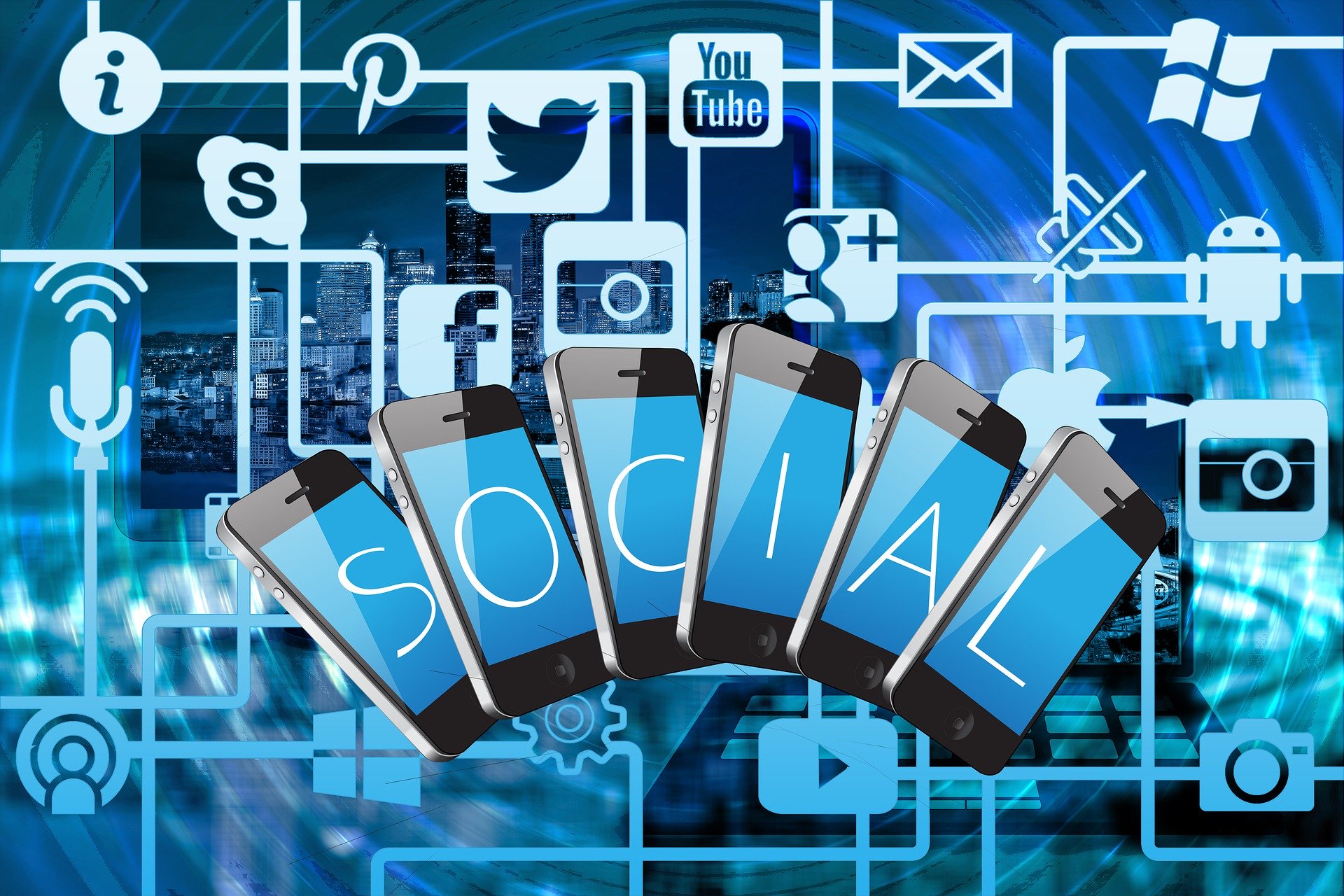
SOCIAL
Social media has sparked a revolution in every aspect of modern life in the 21st century, including politics. Platforms like Facebook, Twitter, and Instagram have transformed how people share political news, run campaigns, and engage in political activities. This shift has a major influence on how politicians and voters communicate making it simpler for them to connect and expand their reach.
In the past, people got their political news from old-school media like newspapers, radio, and TV. These sources couldn’t reach everyone, but they had a big impact. Social media has shaken up this scene. It links people worldwide and lets users chat in real-time. This change has opened up new chances and hurdles for getting involved in politics. Social media makes politics more open to its users. It gives spaces where people can meet, talk, and push for change. During elections social media fired up voters and supporters. Obama’s 2008 campaign proved how well this method worked (Kreiss, 2016). Online social platforms also take political issues global. This lets folks from different countries keep tabs on political events elsewhere. It helps everyone get a better grip on world politics (Chadwick 2017).
But social media’s growth has big downsides too. The same features that get people involved and active—quick sharing and easy access—also help fake news and propaganda spread. Research shows false info moves quicker than true info on social media platforms making it tougher for people to make smart choices and pushing them to pick political sides (Pennycook & Rand 2020). Also social media has become a hotbed for online bullying and harassment, which can damage professionalism and scare good folks away from politics (Muddiman et al. 2021). Some of the angry content shared can even spark real-life violence and fights putting society at risk (Aday et al. 2012).
This essay examines the positive and negative effects social media has on politics. Social media helps political engagement, mobilises campaigns, globalises political issues, supports activist groups, and aids voters in making informed decisions. However, it also creates problems like the spread of fake news, negative online campaigning, cyberbullying, incitement to violence, and the potential for chaos. By analysing these aspects, this essay aims to provide a comprehensive view of how social media is transforming the political landscape. It highlights both the ways it can strengthen democracy and the threats it poses to political stability.
Positive Impacts of Social Media on Politics
Social media has an influence on politics making political participation and learning easier. These platforms provide a space for people to discuss politics, join conversations, and learn about political processes and candidates (Hargittai & Shaw 2020). Increased exposure to political information leads to better understanding. This might help voters to make more informed decisions (Vaccari et al. 2015).
Furthermore social media influences supporter and volunteer mobilisation during political campaigns . Political parties and candidates leverage these platforms to engage with and organise supporters more than traditional methods (Boulianne, 2015). The Obama 2008 campaign serves as a prime example. It utilised social media to engage voters, organise events, and raise funds, which contributed to its electoral success (Kreiss, 2016).
Social media has an influence on internal political affairs by making them more global. Twitter and Facebook give people around the world a chance to understand local political situations, which leads to a wider grasp of political issues (Chadwick 2017). When political matters become visible worldwide, it can put pressure from other countries on governments to tackle problems like human rights abuses or corruption.
Young people use social media to push for change. Gen Z, for example, turns to social media to fight corruption and bad governance. This shows how digital platforms can bring about social change (Smith, 2021). These movements often catch on fast. They get many people to back different causes and hold political leaders responsible for their actions.
Social media influences how people decide about elections. It provides voters with plenty of information such as candidates’ positions on issues and their campaign promises. This helps voters make more informed choices when they vote (Gil de Zúñiga et al. 2012). Also instant updates and direct communication with candidates allow voters to ask questions and receive answers. This results in better voting decisions.
Negative Impacts of Social Media on Politics
Despite these benefits social media has a negative impact on politics. One major concern is its role in spreading propaganda and misinformation. The ease of sharing content online has led to a flood of false or misleading information. This can distort people’s perceptions and interfere with democratic processes (Pennycook & Rand 2020). The viral nature of social media makes these issues even more pronounced. Users often find it challenging to distinguish between reliable sources and untrustworthy ones.
Social media impacts politics when people spread fake news about their rivals without fact-checking. People do this to damage the reputation of other parties or candidates and influence public opinion (Tufekci 2018). This can erode trust in the political process and deepen voter divisions.
Online attacks and harassment of politicians also pose a significant challenge. Social media has become a battleground for insults and personal attacks. This creates a toxic political atmosphere and degrades the quality of political discourse (Muddiman et al. 2021). Such unprofessional behaviour in politics can discourage capable individuals from participating and reduce public confidence in political institutions.
Social media influences physical violence and conflicts. Online discussions sometimes escalate into real-world violence, including kidnappings and violent protests (Aday et al. 2012). The inflammatory nature of certain social media content can heighten tensions and contribute to social unrest.
In the end, the negative mobilisation of people through social media can result in potential chaos. Extremist groups and individuals can exploit these platforms to spread radical ideologies and gain followers leading to disruptive actions or movements (Bartlett & Miller 2010). This misuse of social media poses a threat to social cohesion and political stability.
To wrap up social media impacts politics in several ways, with both positive and negative outcomes. On the bright side, it increases political engagement, helps gather campaign support, globalises political issues, supports activism, and aids voters in making informed decisions. However, it also introduces challenges like the spread of misinformation, negative campaigning online harassment, incitement of violence, and creation of chaos. As social media continues to evolve, it’s crucial for policymakers, educators, and users to address these problems while harnessing the platform’s potential to encourage political participation.
By: Abdifatah Jama
Write and Win: Participate in Creative writing Contest & International Essay Contest and win fabulous prizes.


